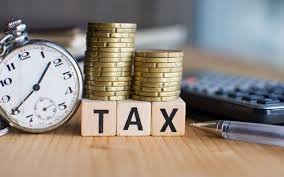How to Hire the Right Tax Advisor
Posted 4 years ago
by merge

The tax laws aren’t written in a straight line. The rules of one section of the law will impact the rules of another section of the law, and the connection isn’t always obvious. On top of this, there are many interpretations of the law that come from judges in court cases. It’s critical that your tax advisor looks at all of the law when figuring out how to best reduce your taxes. If he or she only looks at a single rule, he or she could easily miss out on four or five other rules that could save you money.
Below are the most important traits you should look for when hiring a tax advisor.
1. Your Tax Advisor Should Care More About You Than Himself
How can you know this? It’s simply a matter of whether he or she spends most of the time in your interview answering your questions and talking about himself or herself and his or her services, or whether he or she is more focused on what you need.
If the tax advisor’s routine is for you to ask all the questions, he will (and can) only respond to your questions. He can’t find out anything you don’t volunteer. If, instead, his routine is to ask you questions about your situation, you can be pretty sure that he’ll be looking out for you and what you really want.
Not only that, but the tax you pay depends entirely on your facts and circumstances. Remember my saying that any expense can be a deductible in the right situation? If your situation changes, then your tax will change. If your tax advisor is not asking you questions about your situation, how can he or she possibly know what the tax consequences will be to you? He or she certainly won’t be able to show you how to change your situation so that you receive better tax results.
The reality is that you have all of the answers. Your advisor should have all of the questions. Don’t worry about what questions you should ask your tax advisor. If you have to ask the questions, then you simply have the wrong advisor.
2. Find A Tax Advisor Who Will Also Prepare Your Taxes
Don’t use a tax preparer who isn't your tax advisor. If you do, it can be a huge mistake. You could get great advice, and then the preparer might not know how to use this advice in preparing your tax return.
You want to be sure that your preparer isn’t just accurate. He or she should also be working to reduce your taxes as he or she prepares your return, and he or she should be reducing your chances of being audited. At my firm, we look at tax return preparation as both the final step in last year’s tax planning and the first step in next year’s tax planning. Take the time to look for a good tax advisor who can also prepare your tax returns.
3. Find a Tax Advisor Who Will Teach You the Rules
Also, remember that only you can reduce your taxes. You have to learn enough about how the tax law applies to you so that you can use it to your benefit every minute of every day. Be sure to find a tax advisor who is willing and able to teach you the rules you need to know in order to reduce your taxes.
Many advisors don’t actually want you to know the rules. They’re afraid that if you know the rules, you won’t need their advice. We both know that’s not right. If you know the rules, you’ll be more successful at reducing your taxes. When you reduce your taxes, you’ll increase your cash flow. When you increase your cash flow, you’ll increase your wealth. And when you increase your wealth, you’re likely to need your tax advisor even more than you do now. So it’s really in your advisor’s best interest to take the time to teach you the rules you need to know. It’s certainly in your best interest.